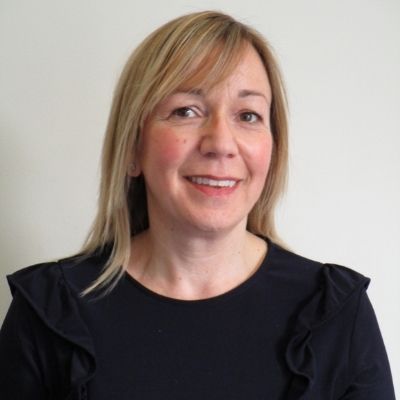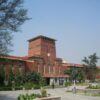Looking for an Early Years programme? Why you should choose Cambridge Early Years
Educators working with young children have one of the most rewarding and difficult jobs. Numerous research studies have shown that the first five years are the most important in a child’s development, with eighty-five per cent of brain development occurring during this time years. Providing responsive, nurturing, and stimulating experiences at this stage motivates children to acquire new skills and prepare them for the future.
Specialising in curriculum development for more than a decade, I believe that this stage of education creates a solid foundation for everything that follows. There is a common misperception that early childhood education is only about learning basic skills, whereas it has a significant role in nurturing values, behaviours and lifelong skills.
Early childhood education should provide a well-rounded curriculum, allowing preschools to focus on the holistic development of children. This helps nurture and foster children’s growth and learning at a young age. Part of this growth is helping children to make a successful transition to primary school, including the development of foundational skills and a gradual move from more informal to more formal teaching.
With the National Education Policy (NEP)2020, I can see India has taken a step in the right direction to address foundations and transition. The policy is envisaging a five-year foundational stage of education which includes three years of early childhood education and two years of primary education. Once introduced, the foundational stage will still require a well-rounded curriculum in-line with the policy.
The Cambridge Early Years Programme has been developed in line with the NEP 2020 and offers a rounded approach that focuses on physical, cognitive, language and communication and social and emotional development. The programme is the start of an exciting educational journey that helps learners aged 3 to 6 develop the knowledge, understanding and skills they need to make the best possible start in life. It gives Centres everything they need to deliver a quality early years education: a holistic and balanced curriculum, engaging classroom resources, assessment approaches to measure learners’ progress, and professional development opportunities. Teaching and learning are play-based and child-centred and builds learners’ skills and confidence in key developmental areas.
Cambridge Early Years provides a solid foundation that young students can build on as they progress in their education. It prepares children for transition to primary school across educational boards, helping them move from play-based learning to more formal learning.
Therefore, the need of the hour is for schools to invest in this programme which is designed specially to meet the needs of young learners in India and is based on international best practice.
I would like to share some of the key highlights of the programme:
Structured and holistic curriculum
The Cambridge Early Years curriculum offers a holistic approach that focuses on the whole child and connects their development with the world and people around them. The Cambridge Early Years Curriculum is a planning tool and the learning statements within it are designed to promote progression in learning from EY 1 to EY 3 and onwards into primary education. It enables development of knowledge, understanding and skills through a spiral approach: by revisiting and engaging with topics and skills at deeper levels and in different contexts across the stages.
Creates independent learners
An ideal early year’s programme should focus on learning which complements social and cultural factors, as well as actively involves children in their own learning through well-planned experiences. This helps learners to act independently and make their own choices, develop at their own pace, and build feelings of competence, emotional attachment, and self-worth.
Learning and teaching resources
A good early years programme should provide access to a range of resources that ignite children’s curiosity, enable development, and are aligned with the curriculum goals. Cambridge Early Years Centres have access to a range of fun resources and materials that are all designed in line with the latest research findings to help teachers build an enriching learning experience.
Measuring progress
Assessment is a crucial part of early years education. It provides valuable insights into children’s progress and can help to plan and support the next stages of their learning and development. Cambridge Early Years includes tools and resources that can help early years settings to assess and evaluate a child’s learning and development against the learning statements within the Cambridge Early Years curriculum framework.
Professional development for Early Years practitioners
Patience, creativity, sensitivity, communication skills and ability to connect with children are arguably some of the most important qualifications for an early year’s educator. However, good quality training and reflective practice are essential parts of a teacher’s professional life as well. The Cambridge Early Years programme enables and equips practitioners to deliver the programme with confidence. It provides platforms which focus on developing best practices and allow plenty of time to exchange ideas with other teachers to develop practical strategies that can be used with learners.
Children who receive high-quality childcare and learning have better developmental outcomes in early childhood, including better cognitive, socio-emotional, and linguistic development. In short, experiences early in life can have a tremendous impact on an individual’s lifetime trajectory.
The above article is authored by Abigail Barnett, Deputy Director Curriculum Programmes, Curriculum & Qualifications, Cambridge Assessment International Education.
The Cambridge Early Years programme was launched in December 2020, and since then more than 30 progressive schools across India are now a part of the Cambridge Early Years family.
If you would like to explore the possibility of becoming a Cambridge Early Years Centre, please express your interest by filling this form.
To know more about the Cambridge Early years programme visit: www.cambridgeinternational.org/earlyyears
Also read: Introducing International Curriculum in your school? Here is what you need to know

















Add comment